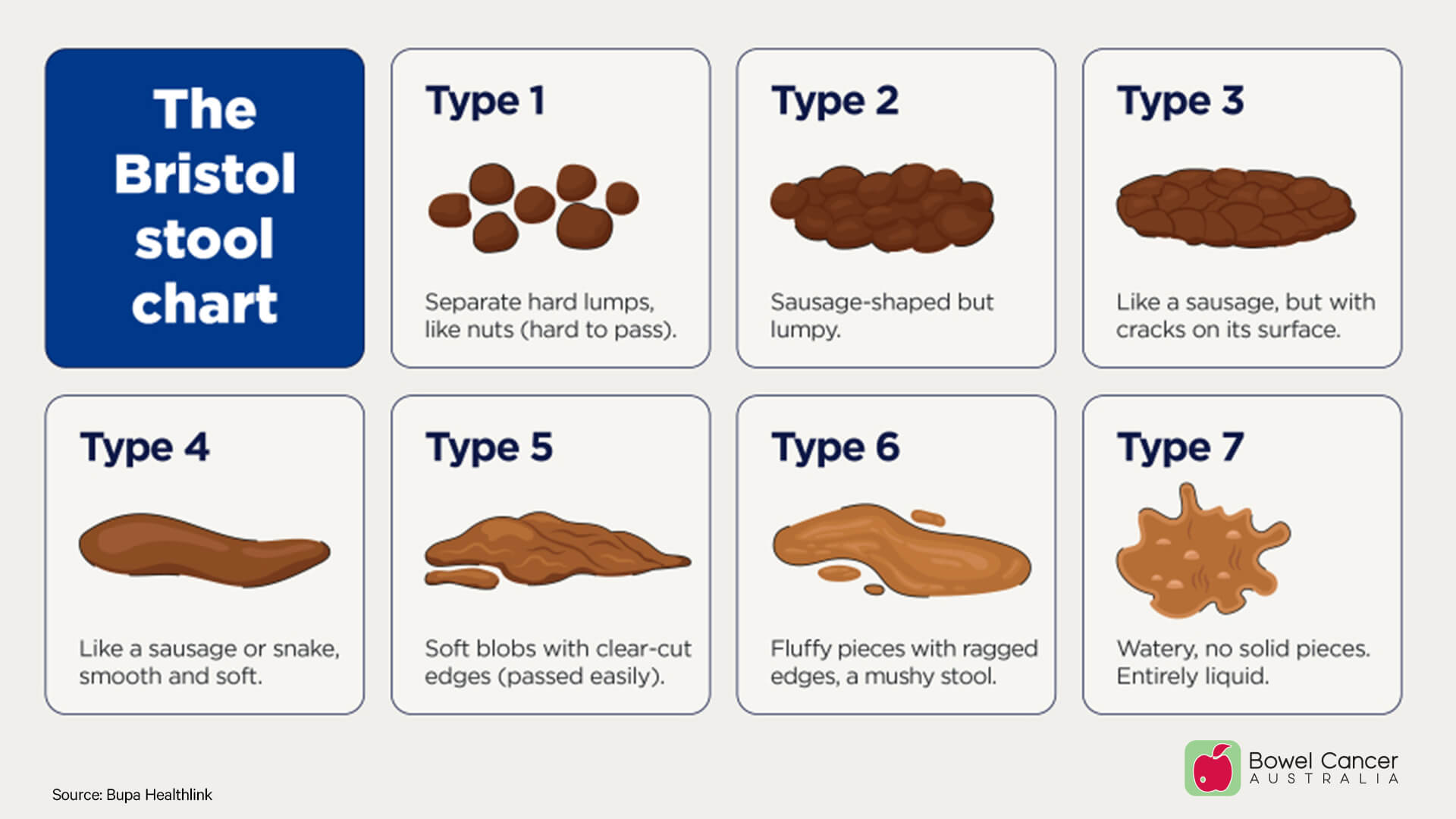Knowing what’s normal (for you), makes it easier to spot any changes in your bowel habit.
However, if a change lasts for more than two weeks, it could be a sign that something isn’t right, and you should discuss it straight away with your GP.
Developed by Dr. Stephen Lewis and Dr. Ken Heaton at the University of Bristol, the Bristol Stool Chart was designed to help classify and categorise poo into seven types to make it easier to distinguish the healthy from the not-so-healthy.
It can be a useful aid when describing your poo to a GP or specialist.
Generally speaking, poo that more closely resembles Type 3 or 4 is considered ‘normal’.
Poo closer to Type 7 is suggestive of diarrhoea and needs to be investigated by a GP if it lasts for over two weeks.
If you notice blood in your poo or experience any of the signs or symptoms linked below for more than two weeks, speak to your GP about it as soon as possible.
World Toilet Day was established by the United Nations to raise awareness of the 3.5 billion people living without access to safely managed sanitation.







